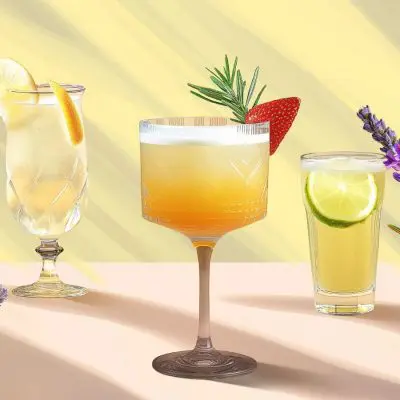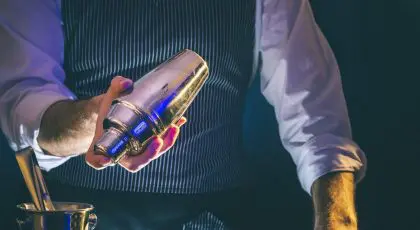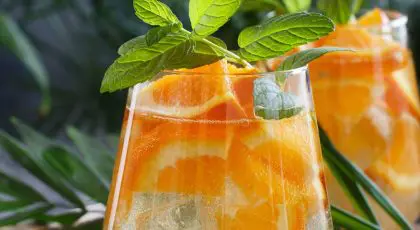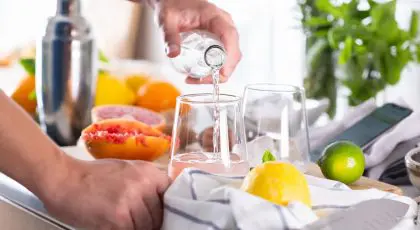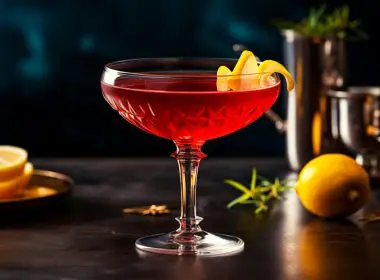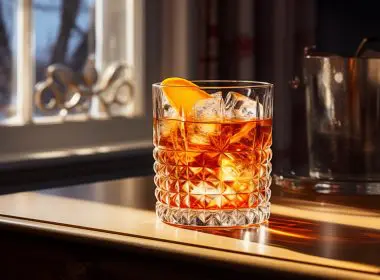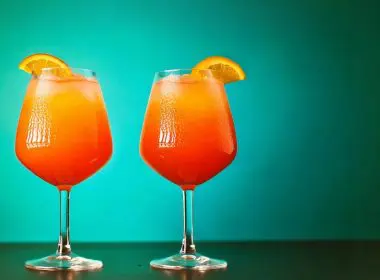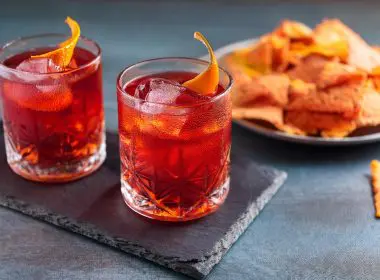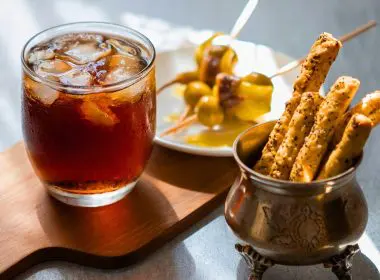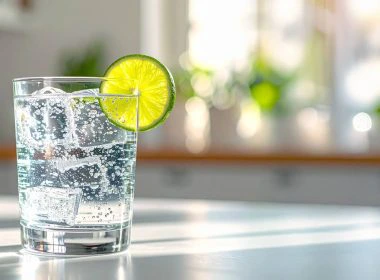8 Easy Ways to Make Your Cocktails More Sustainable
Jump to:
Sustainable cocktails are having a major moment, and we’re here for it. You’ve swapped plastic bags for classy linen totes, started reading labels at the grocery store… Now it’s time to bring that same energy to your cocktail line-up. Sustainable mixology is the next big move for mindful drinkers, and the good news? You don’t necessarily need a Bokashi bin behind your home bar to join in.
We’re talking smarter sips, not snobby ones, like turning citrus scraps into syrup, shaking with seasonal fruit, and backing brands that actually care. This guide spills the tea on how to level up your cocktail game while keeping things planet-friendly, practical, and, most importantly, nice and tasty.
What are sustainable cocktails?
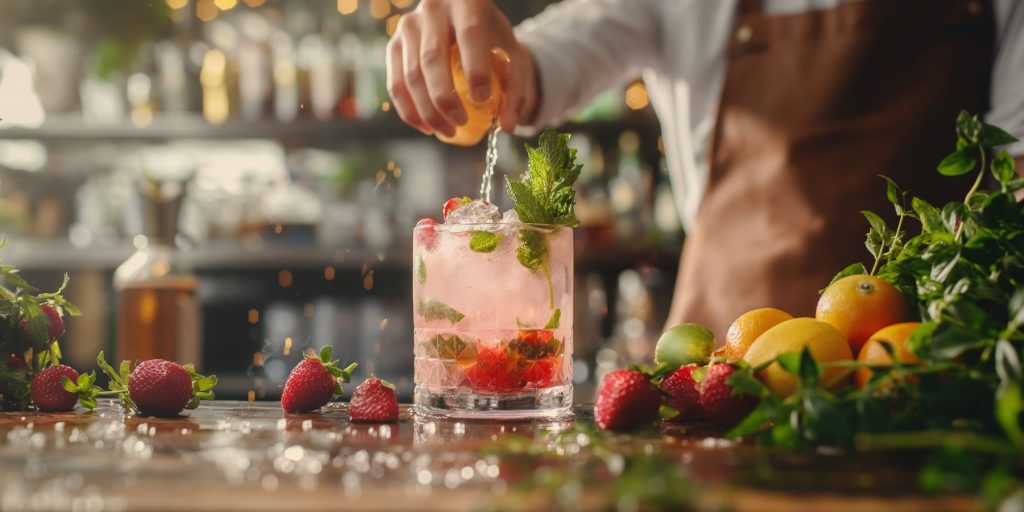
So, what exactly makes a cocktail sustainable? At its core, it’s all about mixing drinks that are big on flavor and low on impact. From the tools you use to how you shop for ingredients, eco-friendly bartending is all about thoughtful choices that reduce waste, save energy, and keep things local.
Zero-waste cocktails are a big part of the movement; think using the whole fruit (peel, juice, even the pulp), repurposing garnishes, and skipping anything single-use. Reusable gear like metal straws and long-lasting bar tools makes a big difference, too. It’s also about being smart with what’s in season and what’s close to home. Choosing local produce and liquors helps shrink your carbon footprint, while water-wise habits and energy-efficient ice-making keep things ticking behind the scenes.
In short? Sustainable cocktails are about doing better behind the bar, without losing the fun. Every time you shake or stir with intention, you’re raising your glass to a greener planet.
Read next: 30 Cocktails to Make the Most of Seasonal Fruit and Vegetables
Quick-win ideas to embrace sustainability behind the bar
1. Wave goodbye to the straw
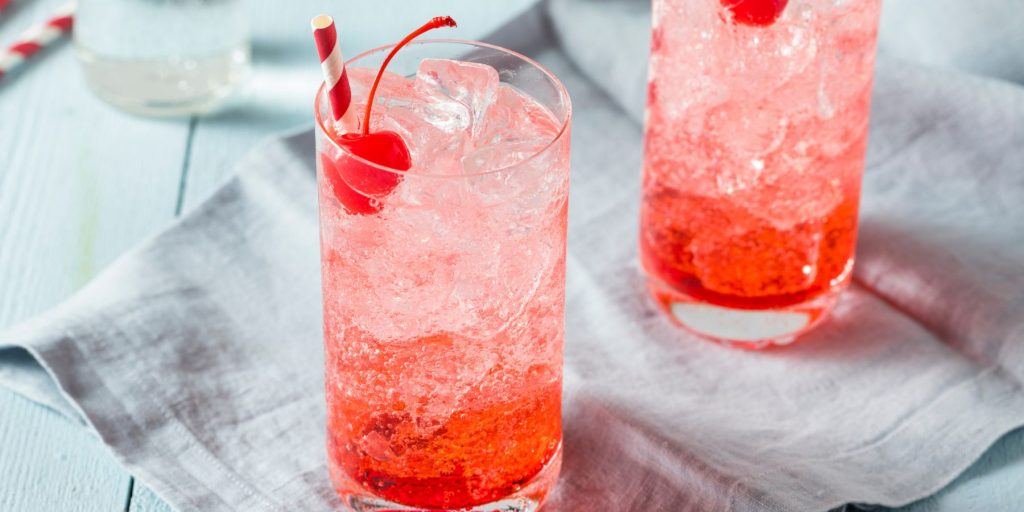
The plastic straw might be a regular guest in classic cocktails, but it’s also very bad for the planet. It is currently projected that by 2050, there will be more plastic than fish in the sea if we keep going at the rate that we are. At the moment, approximately 8 million plastic straws are thrown away every day in the US alone. The easy solution here is to opt for reusable, eco-friendly drinking straws from bamboo or stainless steel when you make cocktails at home.
2. Celebrate local ingredients
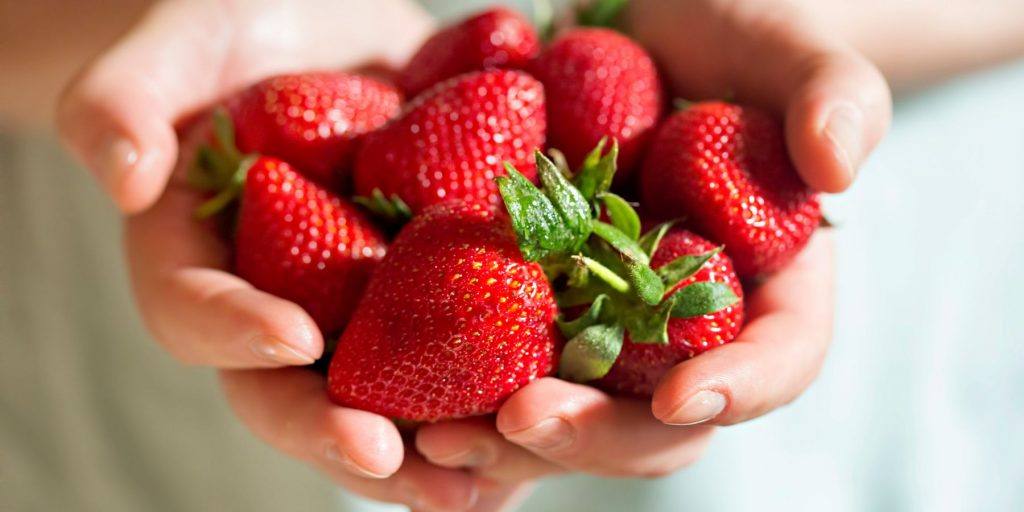
Consuming locally is always better. This also shows that you’re willing to spend a little more to serve up a gorgeous drink for your guests. More and more people are attached to sustainable ingredient provenance, and knowing that what is in their glass does not come from the other side of the world, but from the trader next door, is a plus.
This is the basic groundwork we need to lay to create and develop sustainable cocktail recipes. You vote for or against the planet every time you open your wallet! When you know that freight emissions can represent half of the carbon footprint of a cocktail, it makes you think…
Read next: Vegan Cocktails: Explore Vegan Liquors in 2024
3. Shop & shake seasonally
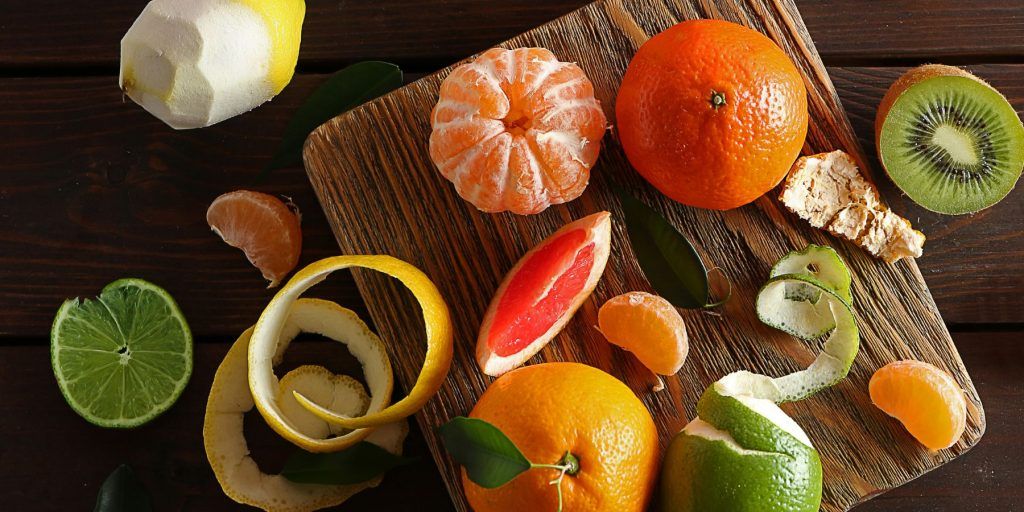
The same logic regarding sustainable cocktails applies here. Respecting the season must be a priority. Instead of choosing a cocktail at random and then hunting down the ingredients at your grocery store, rather see what’s in season at the moment and base your cocktail choices on that. This way you will be able to get ripe, fresh fruit from your region, and you’ll pay less as well.
Cheers! 10 Low-Sugar Cocktails for a Light and Lovely Happy Hour
4. Make your own ice
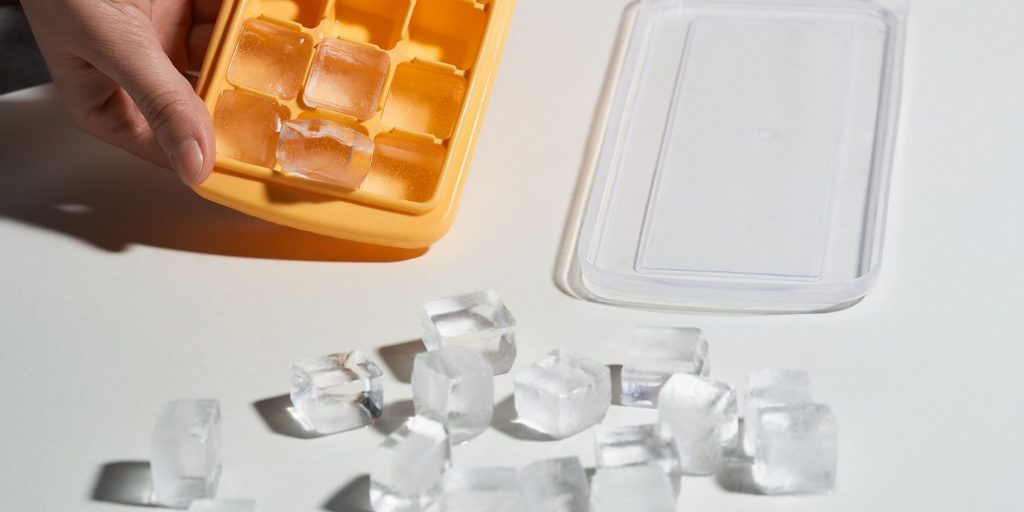
Instead of buying bags of ice every time you want to make cocktails at home, make your own instead. There are a variety of molds available on the market, including very durable metal molds with levers that make the ice easier to dislodge.
Go pro! How to Make Clear Ice for Your Favorite Drinks
5. Use everything
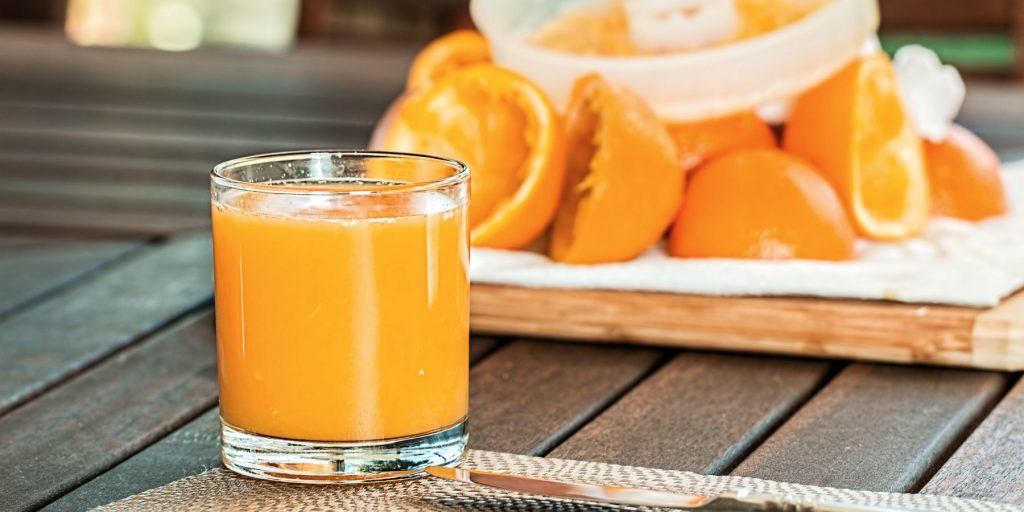
Make your objective to throw away as little as possible. Use every element of an ingredient. For instance, if you only need the peel of an orange for your drink, squeeze the juice and freeze it in cubes to use later. Or make syrup! Herbs can be used to infuse oils, fruit scraps can be used to make vinegar – there is always a way to be thriftier.
Shiso Cocktails: How to Use This Aromatic Herb in Your Drinks
Tips & techniques to create low-impact drinks
6. Infusions
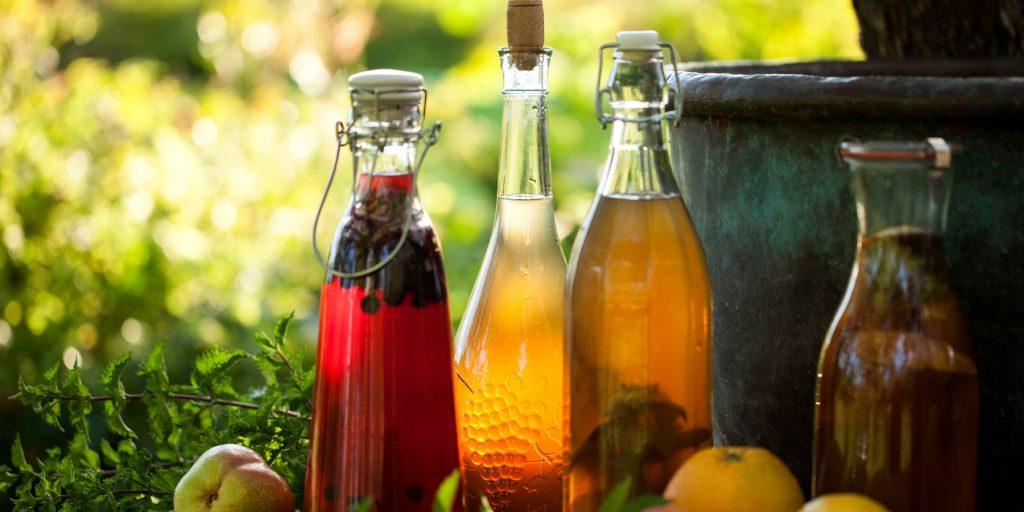
Infusions allow you to capture the essence of peak-season fruits and herbs and enjoy their flavors throughout the year. Stock up on seasonal ingredients when they’re abundant and affordable, and infuse them into your favorite liquors. Think strawberry-infused vodka for summer cocktails or rosemary-infused gin for winter warmers! This way, you can savor those vibrant flavors long after the season has passed.
7. Dehydration
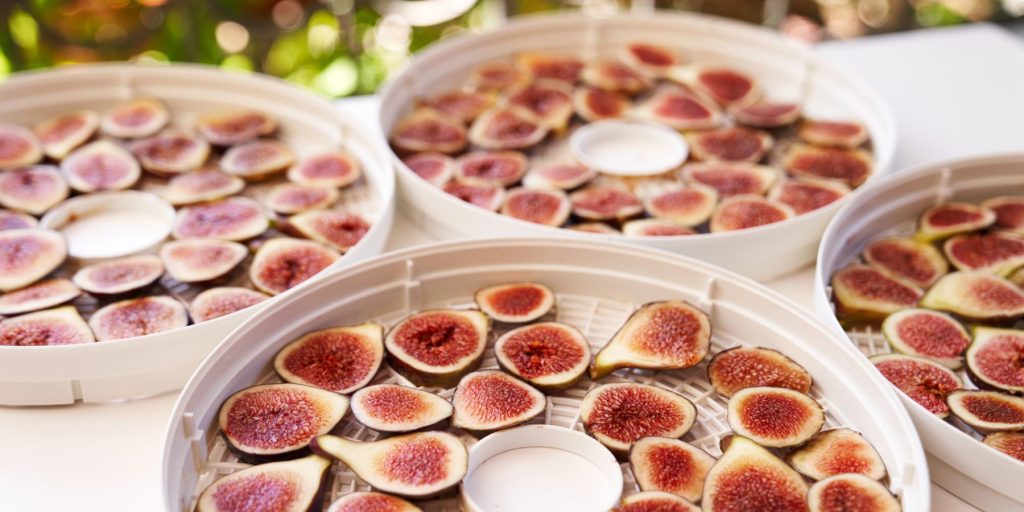
Dehydration breathes new life into leftover ingredients. Instead of tossing out citrus peels, apple cores, or leftover herbs, dehydrate them and create beautiful and flavorful garnishes. Dehydrated orange peels add a zesty touch to a Sazerac, while dehydrated fig slices can add a sweet and crunchy element to a Mediterranean-inspired cocktail.
In the details: 7 Tiny Cocktails That Pack a Big Punch
8. Fermentation
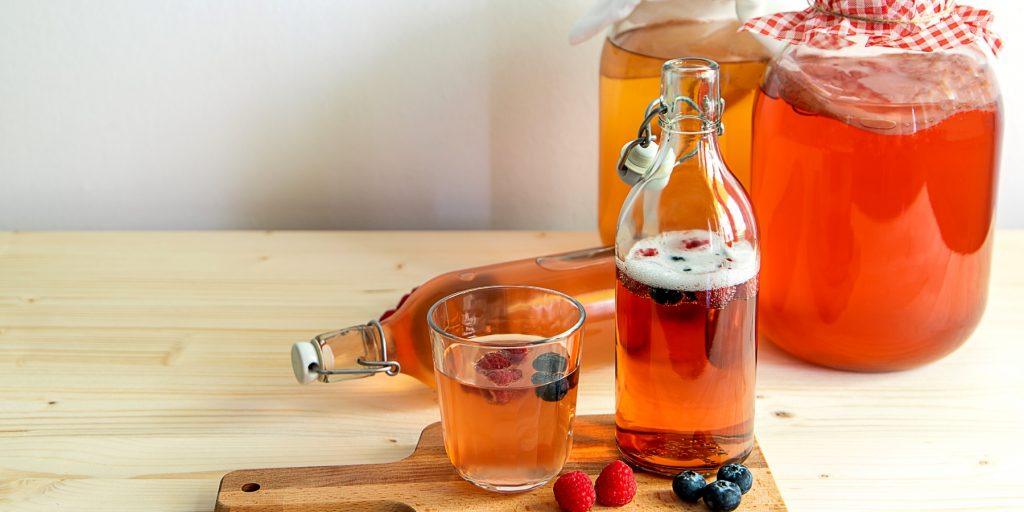
Fermentation is a fascinating process that uses microorganisms to transform fruits and vegetables into new and exciting flavors. This age-old technique can be harnessed to create unique ingredients for your sustainable cocktail repertoire. Overripe or bruised produce can be transformed into delicious fermented ingredients like shrubs (fruit vinegar) or even homemade creations like fermented fruit wines.
Learn more: Why Fermented Cocktails are Growing in Popularity (+15 of our Favorites to Try)
Sustainable liquors to try
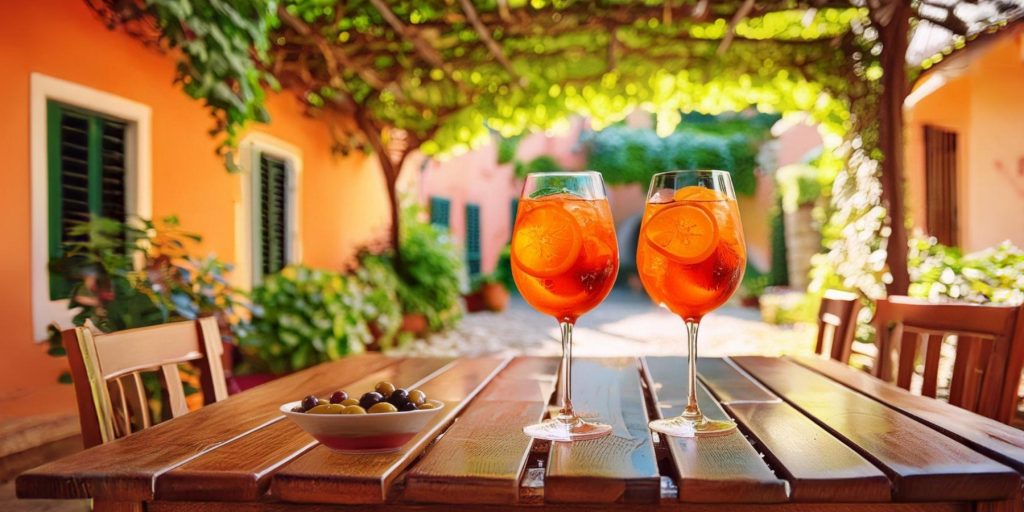
Looking to make your home bar more sustainable? Start with what’s in your bottle. Choosing sustainable liquors is one of the easiest cocktail sustainability tips to put into practice, especially when you’re already mixing with brands that are walking the talk. Here are a few eco-conscious favorites that pair beautifully with seasonal ingredients in cocktails:
SKYY Vodka
Clean and modern with a focus on purity, SKYY is crafted using a state-of-the-art, quadruple-distilled and triple-filtered process. It contains no animal-derived ingredients, no artificial colorants, and the charcoal used in production is entirely inorganic and removed before bottling. It’s a solid pick for eco-conscious drinks, especially when paired with fresh, seasonal infusions like cucumber or strawberry.
Appleton Estate Rum
Rooted in Jamaica and powered in part by its production leftovers, Appleton Estate is serious about greener operations. A portion of the estate’s electricity comes from by-products of the rum-making process, and the range is 100% free of animal products. Try it in a zero-waste cocktail with grilled pineapple or overripe banana syrup; the deeper the flavor, the better.
Wild Turkey Bourbon
This bold Kentucky bourbon comes with a side of long-standing tradition and smart evolution. In 2023, Campari Group invested in major distillery upgrades at Wild Turkey, improving waste treatment processes to make production more efficient and less impactful. It’s the perfect base for simple, low-waste cocktails like a classic Boulevardier with a dehydrated citrus twist.
Aperol
Bright, low-ABV, and practically built for batching, Aperol is a crowd-pleaser that also happens to be great for eco-friendly bartending. It shines in big-batch Spritzes (just add in-season citrus, Prosecco, and club soda!) and its commitment to responsible packaging disposal adds a layer of planet-minded polish. Low effort, low waste, and high on summer vibes.
Dreamy & delish: Your Guide To Making Creamy Vegan Cocktails
Sustainable spins on five cocktail classics
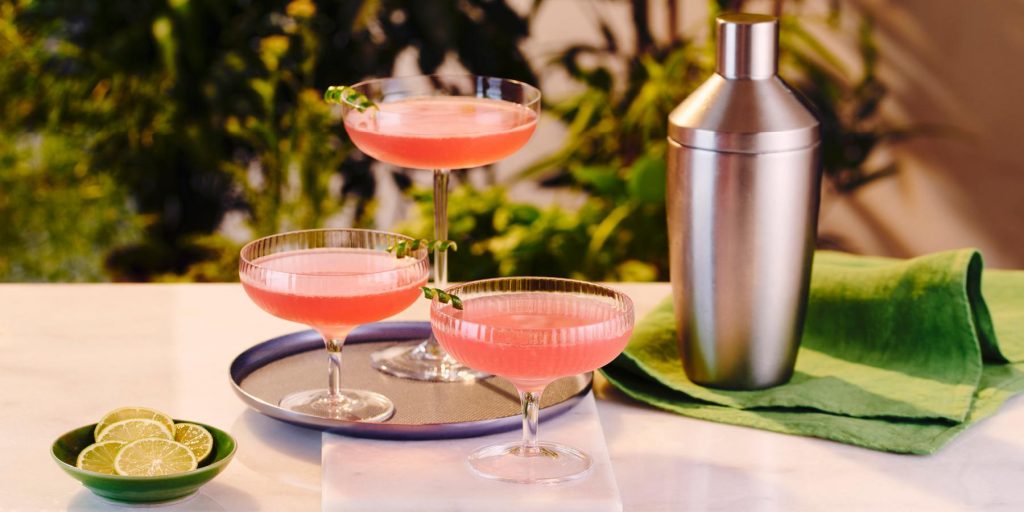
You don’t need to reinvent the wheel to make eco-conscious drinks. In fact, some of the most iconic cocktails are already pretty planet-friendly with just a few small tweaks. Here are five classics made with sustainable liquors, reimagined with simple tips to cut waste, use seasonal ingredients, and level up your eco-friendly bartending game.
Vodka Collins
This tall, citrusy classic is a great blank canvas for seasonal flavor. Instead of tossing used lemon peels, turn them into an oleo saccharum, a zingy citrus syrup made from leftover rinds and sugar. It adds depth and minimizes waste, while giving your drink a homemade touch. Top with club soda from a SodaStream to avoid single-use bottles and reduce your footprint.
How to make oleo saccharum:
Add the peels of 3–4 lemons to a bowl with half a cup of sugar. Massage the sugar into the peels with your hands until they start to release oil. Cover and let sit for a few hours (or overnight), then strain the syrup into a clean jar. Keep it in the fridge and use it to sweeten Collins cocktails, lemonades, or even iced tea.
Daiquiri
The Daiquiri is all about the beautiful balance between rum, lime, and sugar. To give it a sustainable twist, save those leftover lime husks and infuse them in vinegar to create a citrus shrub. It’s a clever way to get an extra use out of scraps and add a subtle tang to your drink. Garnish with something seasonal like dehydrated mango for a fun, zero-waste finish.
Old Fashioned
This bourbon beauty is ideal for low-waste mixing. Instead of slicing a fresh orange every time, use peels to make a spiced syrup that adds depth without adding waste. Skip the sugar cube and stir in your homemade syrup instead. Top it off with a dried citrus wheel, a simple and compostable garnish that still looks the part.
Aperol Spritz
Already a favorite among eco-conscious drinkers, the Aperol Spritz becomes even more sustainable when you batch it ahead of time and serve with in-season citrus. Think blood orange in winter or grapefruit in late summer. Leftover peels? Candy them for a sweet, upcycled cocktail ingredient that doubles as a snack.
Cosmopolitan
The Cosmo is sharp, elegant, and easy to adapt. Instead of opening a full bottle of cranberry juice for a round or two, try a small-batch shrub made with bruised or frozen berries and vinegar. It keeps longer and adds a punch of flavor without the waste. A quick twist of orange zest, saved from breakfast, is the perfect finishing touch.
Each of these classics proves that a greener bar cart doesn’t require sacrifice, just a few good habits and a little imagination. Want more smart tips like these? Sign up for our newsletter and get inspired with seasonal recipes, sustainable swaps, and low-waste hosting ideas. Remember to tag us when you share your sustainable creations online, and, in the meantime, visit the SKYY Vodka and Wild Turkey websites for more easy-sipping inspo.
